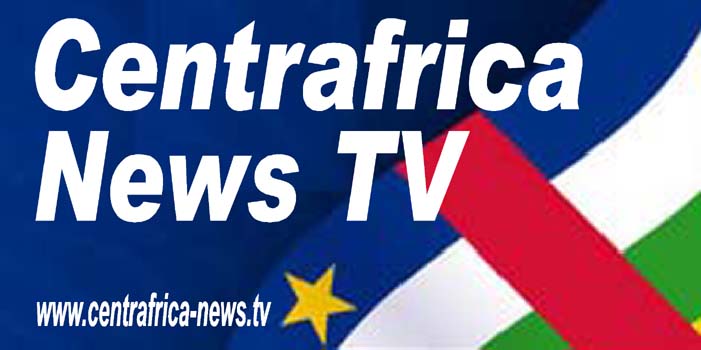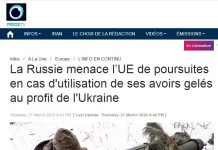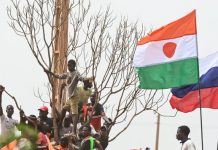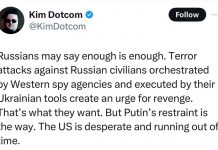Karel Huybrects pour
Le Quotidien géopolitique – Geopolitical Daily/
de LUC MICHEL (ЛЮК МИШЕЛЬ)/
2022 10 18/ Série IV/
(avec)
Une nouvelle attaque en ligne du Pentagone contre le géopoliticien Luc Michel :
Découvrez une nouvelle version de l’article co-écrit par Marlène Laruelle et Kévin Limonier (recherches financées par l’Institut de Recherche du service de Renseignements de l’US Navy) « Beyond “hybrid warfare”: a digital exploration of Russia’s entrepreneurs of influence » pour le Post-Soviet Affairs, Volume 37, Issue 4.
* Original en anglais :
https://geode.science/kevin-limonier-marlene-laruelle-beyond-hybrid-warfare-a-digital-exploration-of-russias-entrepreneurs-of-influence/
* Et :
https://www.tandfonline.com/doi/full/10.1080/1060586X.2021.1936409?journalCode=rpsa20
Résumé:
« Cet article soutient que pour saisir l’influence de la Russie à l’étranger, il faut appréhender la « diplomatie grise » du pays comme un domaine néolibéral ouvert aux initiatives individuelles. Nous définissons les « entrepreneurs d’influence » comme des personnes qui investissent leur propre argent ou leur capital social pour renforcer leur influence à l’étranger dans l’espoir d’être récompensés par le Kremlin. Nous testons cette notion en examinant des entrepreneurs d’influence célèbres et inconnus et leurs activités numériques. Nous les divisons en trois grandes catégories en fonction de leur degré de proximité avec les autorités : les magnats (Yevgeny Prigozhin et Konstantin Malofeev), les chronométreurs (Alexander Yonov et Alexander Malkevich) et les PIONNIERS DE PREMIERE LIGNE (LE BELGE LUC MICHEL). L’analyse des données techniques documentant leurs activités en ligne montre que certaines de ces initiatives, bien qu’inscrites dans les aspirations larges de Moscou à une grande puissance, reposent sur les agendas spécifiques de leurs promoteurs, et dessinent ainsi les limites inhérentes aux efforts de Moscou. »
ENTREPRENEURS OF INFLUENCE AND THEIR DIGITAL TRACES: A CONCEPTUAL AND METHODOLOGICAL APPROACH
“The incredible diversity of actors who participate in Russia’s actions abroad is regularly highlighted. A European report on Russian disinformation, for instance, mentions the notion of “polarization entrepreneurs” – although without expanding on this (Bentzen 2018). Several journalists have observed the role of “freelancers” in Russia’s so-called hybrid warfare (Stelzenmüller 2017). Mark Galeotti has coined the term “adhocrats” to describe the actors of the largely de-institutionalized Putin regime, which uses a complex chain of command to create plausible deniability (see Kim 2017). However, there has not yet been robust scholarly analysis of the phenomenon. This article hopes to begin to fill that gap by introducing the concept of entrepreneurs of influence.
“The notion of an entrepreneur of influence, as elaborated in this article, is grounded in a large body of literature that has documented the inner machinery and logics of Russian power over the past three decades. During the turbulent 1990s, “violent entrepreneurship” dominated the shift toward a market economy, epitomized by the famous “thieves in law” (vory v zakone, big mafia bosses with patrons inside the political system and the law-enforcement agencies) (Volkov 2002; Galeotti 2018). This culture of violent entrepreneurship seems to have been exported abroad and is now developing at a transnational level.”
“(…) Entrepreneurs of influence Activities that were once the exclusive province of state institutions have now been outsourced to private actors. Some imagination, a lot of opportunism, and financial or social start-up capital help these entrepreneurial figures to find a room of their own in the gray zones of Russia’s quest for great-power status. »
LUC MICHEL:
“THE LOCAL PIONEERS, OPENING NEW FRONT LINES”
“In a third concentric circle are local actors who join Russia’s actions abroad out of ideological conviction and/or due to materialistic, opportunistic motives. These local actors have their own agendas to pursue in terms of securing their own networks and legitimacy, and interact in a more distant way with Russian institutions or representatives. We take the Belgian Luc Michel as our case study of these “local pioneers.”
Michel has been involved in the nationalist-revolutionary sphere since his late teens, inspired by Jean-François Thiriart (1922–1992), the ideologist (…) who promoted the idea of a “Euro-Soviet Empire from Vladivostok to Dublin” (Thiriart 1984) (…)
“Michel founded the small Communitarian National-European Party, envisioning it as a pan-European movement that would, by uniting far right and far left, liberate Europe from “Yankee colonialism” (Nation-Europe 2005). Seeing Russia as the main opponent of US imperialism, he had built contacts with Russian far-right ideologists such as Alexander Dugin by the early 1990s, but he also defended other “resistance” figures such as Saddam Hussein and Muammar Gaddafi.
“In the mid-2000s, Michel succeeded in institutionalizing his status through the Commonwealth of Independent States–Election Monitoring Organization (CIS-EMO), an organization that has been a pioneer in monitoring controversial elections in the post-Soviet space. He then established his own electoral monitoring organization, the Eurasian Observatory for Democracy and Elections (EODE), which has validated the secessionist elections and referendums organized in Transnistria, Abkhazia, Nagorno-Karabakh, Crimea, Donbas, etc., and has offices in Moscow, Paris, Brussels, Sochi, and Chișinău.10
“Michel subsequently turned his interest to Africa, becoming the figurehead of the TV channel Afrique Media (afriquemedia.tv). Based in Cameroon, where its domain name was registered in 2011, the channel brands itself the “pan-African CNN” and is followed by nearly 260,000 people on Facebook (…) Afrique Media has produced vast amounts of content condemning “foreign influences” portrayed as eager to “destroy Africa.” Overall, the editorial line of the outlet can be described as verging on conspiracy theory with a patina of radical pan-Africanism that blames Westerners – especially the French – for every problem facing the African continent.
“Michel seems to have endorsed Afrique Media as early as 2014. That year, he announced on his blog that Russia had “saved Afrique Media from the rascalism of Canal+” (Michel 2014) in a business quarrel over the attribution of satellite frequency bands. Without going into any detail about this so-called rescue mission or his role therein, Michel congratulated himself on having apparently, “with help from the Russians,” prevented the cessation of the channel’s broadcasts on a frequency owned by Canal+. Since then, Michel has continuously offered support to this pan-African media outlet. In 2016–2017, he held a fundraising call to finance the construction of new offices for the channel, a move he repeated in 2019 to finance the opening of an Afrique Media office in Brussels (Leetchi n.d.). In addition to his financial support, Michel often appears on the channel, where he presents himself as a geopolitician and Africa specialist. In April 2019, he met with the First Lady of Chad in Ndjamena, introducing himself as Afrique Media’s main TV anchor (Alwihda Info 2019).
“Afrique Media is not the only platform linked to Michel. The Belgian adventurer also runs a large network of websites directed toward African audiences. He manages the website La voix de la Libye (The Voice of Libya) as well as several online TV channels in Chad, Cameroon, and Benin. Most of these websites are registered in the name of Fabrice Béaur, a fellow Belgian citizen (in reality french !) who is also a member of the Communitarian National-European Party (WHOXY Fabrice n.d.). Béaur, a political activist who has written for Sputnik News and the Iranian outlet PressTV, seems to have provided technical support to Michel by creating and organizing his network of websites (WHOXY Fabrice n.d.).
Michel is typical of the early entrepreneurs of influence: he has invested resources – time, money, and networks – in promoting Russia’s vision of the African continent on different platforms. It is very unlikely that Michel acted at the request of Moscow, even if he and Prigozhin may be connected through AFRIC (Weiss and Vaux 2020b). Yet he and Afrique Media are de facto echo chambers for Russian narratives, as such narratives are aligned with their own political agendas. This type of pioneering entrepreneur therefore sees Russia as a resource that can be deployed to bring his own projects to fruition.”
FUNDING OF THE REPORT:
For Marlene Laruelle, this article is part of a two-year project with Erica Marat, Russia and China as Service Providers for Illiberal Governance, funded by the US Department of Defense under the DECUR partnership of the Minerva Research Initiative, award 19-1039401473. The views expressed here are those of the authors and should not be attributed to the US Department of Defense or the Office of Naval Research.
Luc MICHEL (Люк МИШЕЛЬ)
* Avec le Géopoliticien de l’Axe Eurasie-Afrique :
Géopolitique – Géoéconomie – Géoidéologie – Géohistoire – Géopolitismes – Néoeurasisme – Néopanafricanisme
(Vu de Moscou, Téhéran et Malabo) :
PAGE SPECIALE Luc MICHEL’s Geopolitical Daily
https://www.facebook.com/LucMICHELgeopoliticalDaily/
* WEBSITE http://www.lucmichel.net/
LUCMICHEL-TV https://vk.com/lucmicheltv
TWITTER https RADIO.LUCMICHEL
https://www.podcastics.com/podcast/radiolucmichel/://twitter.com/LucMichelPCN
FACEBOOK https://www.facebook.com/Pcn.luc.Michel/










